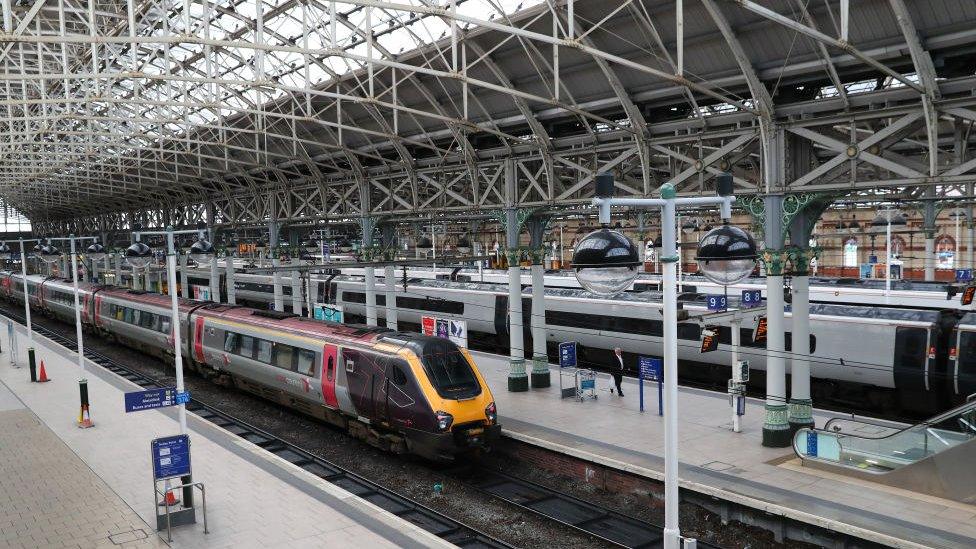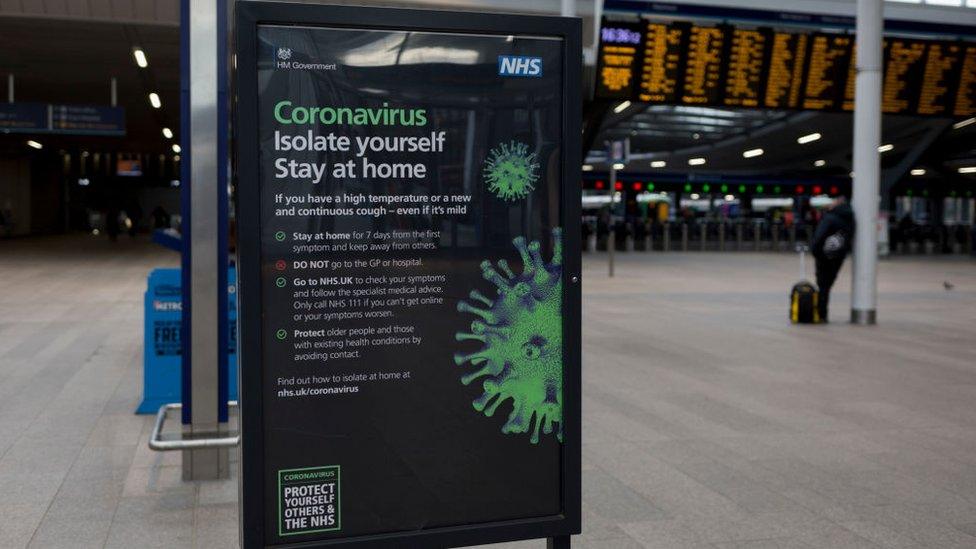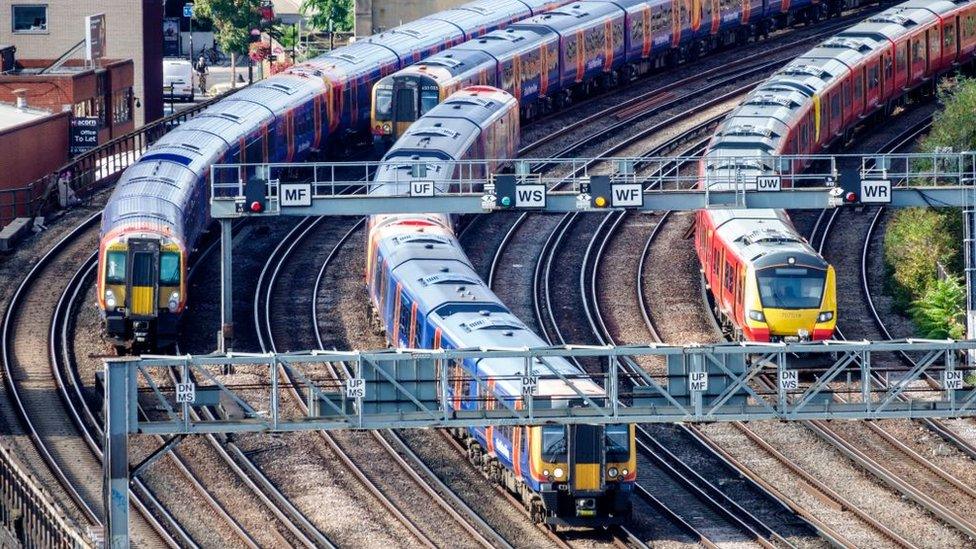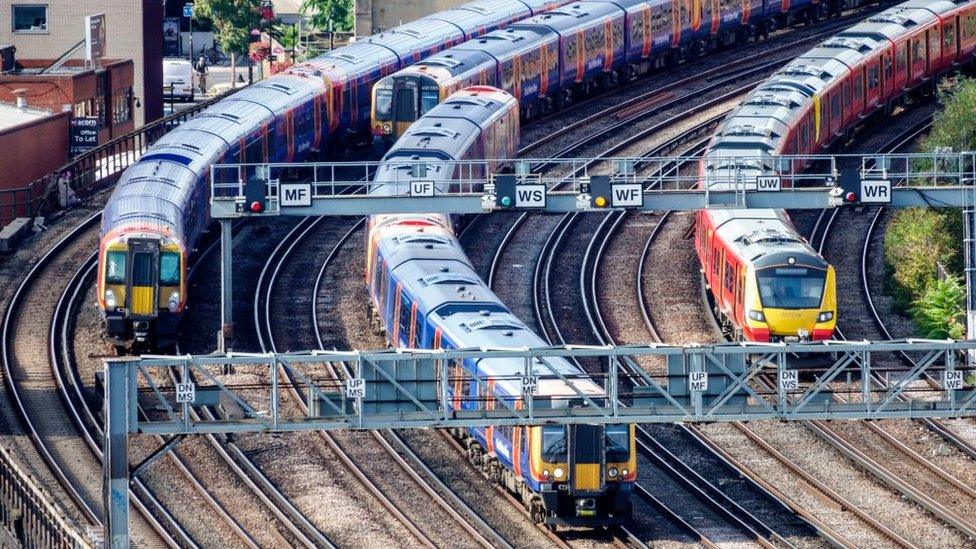Commuters to get refund on rail season tickets
- Published
- comments

Commuters with rail season tickets will receive a refund if they choose to stay at home during the coronavirus outbreak, the government has promised.
Transport Secretary Grant Shapps said it would "ensure no-one is unfairly out of pocket for doing the right thing".
The refund is part of a package of measures to support train companies.
There has been a 70% drop in passenger numbers and ticket sales have dropped by two-thirds, the Department for Transport (DfT) said.
As a result, the firms responsible for keeping the trains running are facing "significant drops" in their income, the government said. The number of services they run has also been cut.

To stop those firms from going under, the DfT has suspended all rail franchise agreements, which govern things such as how many trains run each hour and and restrict how much the companies that run them can charge for tickets.
Under these contracts, the train operators are generally required to make payments to the government to run services on parts of the rail network.
However, DfT has now suspended these agreements for six months.
Instead, all the money from fares will be paid to the government, which will also take on the financial risk of running the network, to save firms from going under as a result of the slump in demand.
However, the train operators will continue to run the services "for a small predetermined management fee", the DfT said.


In reality this was the government's only option.
The annual cost of running all of the UK's trains is around £12bn.
With passenger numbers plummeting and ticket revenue plunging with it, the government had to step in to plug the gap.
A lot of taxpayer cash already goes into the railways, but over the next six months an additional injection of several billion pounds might be needed so that the network can still operate.
Sadly, the reduction in the number of train services running doesn't save much money. The train companies have other high fixed costs such as staffing and the price of leasing trains.
This temporary emergency rail system that we'll soon have is more akin to a nationalised model.
Private companies will run the trains but the government underwrites it all and, during this exceptional time, carries the losses.
We still can't rule out the possibility that once the details of each deal are worked out, a train company or two pulls out. In that situation, the franchises affected would have to be nationalised.

"This will allow us to ensure that trains necessary for key workers and essential travel continue to operate," the DfT said in a statement.
However, it warned: "No other passengers should travel."
Mr Shapps said: "We are taking this action to protect the key workers who depend on our railways to carry on their vital roles, the hardworking commuters who have radically altered their lives to combat the spread of coronavirus, and the frontline rail staff who are keeping the country moving."
The move was welcomed by the Rail Delivery Group, which represents train operators and Network Rail.
"The rail industry is working together so that people and goods can keep making essential journeys during this unprecedented national challenge, getting key workers to hospitals, food to shops and fuel to power stations," said Paul Plummer, chief executive of the Rail Delivery Group.
"While we need to finalise the details, this will ensure that train companies can focus all their efforts on delivering a vital service at a time of national need."
- Published16 August 2019

- Published15 March 2020
